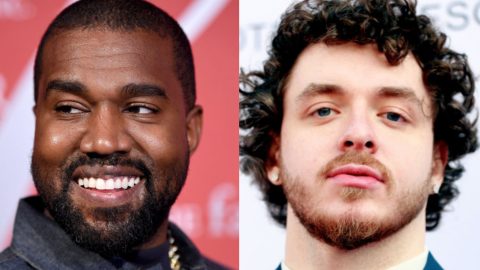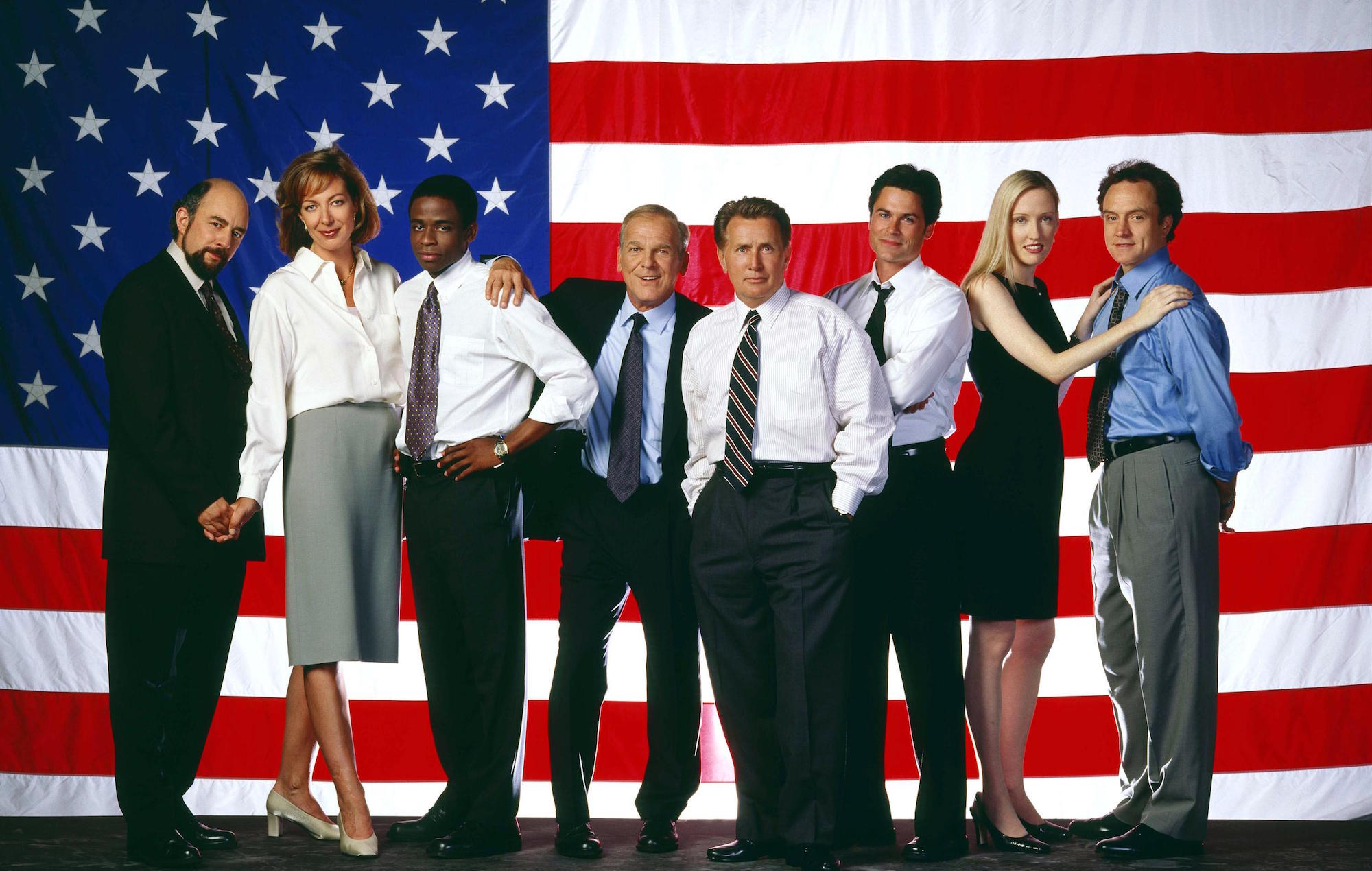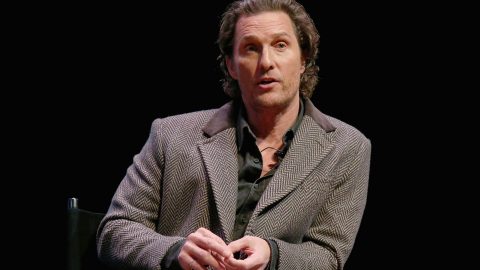
Which UK girl band did you help invent?
“[Laughs] Atomic Kitten.”
CORRECT. Orchestral Manoeuvres in the Dark (OMD)’s frontman Andy McCluskey, who formed Atomic Kitten, claimed that you suggested he create a girl group, adding: “Kraftwerk invented Atomic Kitten.”
“They were a nice band. It was during the time his OMD co-founder Paul Humphreys had left the band, and Andy had released OMD’s ‘Sugar Tax’ album on his own and was feeling alone. I suggested he was such an excellent songwriter, he should become a producer – instead of putting 300 per cent effort into OMD, just create a girl group. He took me by surprise that he actually did it! Andy and I have written the fantastic songs ‘Mathew Street’, ‘Kissing the Machine’ and ‘The Moon and the Sun’ together and I enjoy working with him.”
Which 1970s Salford band used Kraftwerk’s ‘Trans-Europe Express’ as their walk-on music during gigs?
“I’ve no idea!”
WRONG. It was Joy Division. Bassist Peter Hook once told NME: “Ian [Curtis, late Joy Division frontman] suggested that every time Joy Division go on stage, we should do so to Trans-Europe Express. We did that from our first show, until nearly our last”.
You later ended up working with Joy Division/New Order’s Bernard Sumner on his second Electronic – the supergroup he formed with Johnny Marr – album, 1996’s ‘Raise the Pressure’….
“Bernard’s a real soulmate but he didn’t tell me Joy Division played any Kraftwerk songs before they entered the stage. I didn’t read about it in NME! [Laughs] Working with Electronic rescued me. It was shortly after I left Kraftwerk [in 1990] and he sent me a fax, handwritten, asking to work with me, which was flattering. =Bernard and Johnny Marr came along to my Düsseldorf studio and I was playing the Kraftwerk tunes that I’d co-written on a piano, and we knew could work together.”
It sounds like a fun period…
“I got one of the worst hangovers I’ve ever had in my life after attending [Pet Shop Boy and Electronic affiliate] Neil Tennant’s 40th birthday! When we worked at the Power Station studio in London, Brian May paid a visit wearing very short short-shorts. With his hair, he looked like a flower-fairy! Noel Gallagher turned up once – he and Johnny spoke Mancunian to each other and I couldn’t understand a word!”
Talking of collaborations… in your autobiography, The Sound of the Machine, you reveal that Elton John asked to work with Kraftwerk around the time of their 1981 album ‘Computer World’, and there are reports Michael Jackson also wanted to team up with the band…
“As far as I remember, Michael Jackson wanted to work with us, but he also wanted to buy the master tapes of [Kraftwerk’s 1978 album] ‘The Man-Machine’, which was not possible. What do I think a Kraftwerk collaboration with Elton John would have sounded like? I don’t know! Can you imagine ‘Candle in the Wind’ co-composed by Elton and [late Kraftwerk member] Florian [Schneider-Esleben]?! [Laughs]”
Which metal band covered Kraftwerk’s ‘The Model’ in 1997?
“Rammstein?”
CORRECT. What did you think of it?
“He has a very strange voice! [Karl imitates Rammstein frontman Till Lindemann’s growl] It’s noisy and comic, but it’s not supposed to be comedy; it’s a sad story with Rammstein! My heart is more towards New Order! [Laughs]”
After ‘The Model’ tops the UK charts in 1982, you were annoyed at Kraftwerk’s reluctance to capitalise on its success…
“I wanted to play gigs. After we went on the 1981 World Tour, we never played another concert and slept through the 1980s MTV period when electronic stars had major success and hits. We did so many things wrong. We didn’t promote ‘The Man-Machine’ in America If we’d promoted it with the red shirts and robots, it would have been a huge success. But it was swallowed up by ‘Computer World’, and those two records became one on the tour. I wanted to tour ‘The Man-Machine’ with a metal scaffolding set, where we’d slide down the metal bars like the firefighters in the François Truffaut film Fahrenheit 451, but that was thrown away.”
Which TV show did Kraftwerk make their first UK live appearance on in 1975?
“Tomorrow’s World”.
CORRECT. The BBC’s science and technology programme.
“That was a great show, but it’s one of those moments where my brain cells fail me, because I can’t remember anything about it! It was during our first tour of America where we played over 80 shows, so they all merge into one.”
Which 2011 Marvel film contains three Nazi characters named after Kraftwerk members?
“The Big Lebowski?”
WRONG. Although The Big Lebowski does boast a Kraftwerk homage in that a protagonist was in the spoof band Autobahn, with their record ‘Nagelbett (Bed of Nails)’ being a parody of ‘The Man-Machine’.
The Marvel movie was, in fact, Captain America: The First Avenger, which contains the characters Roeder, Hutter, and Schneider, named after Kraftwerk members.
“Oh! I remember somebody telling me about that, but I haven’t seen the movie.”
The amount of dog-whistle xenophobia Kraftwerk faced from the British press in the early days is astounding. One Lester Bangs-written article was headlined: “Kraftwerk: The Final Solution to the Music Problem?’ Did that shock you?
“I think that Lester Bangs article is the best one on Kraftwerk ever, because he came up with the line ‘In the end, the machines will play you’ which is exactly what Kraftwerk is now. When I was in Kraftwerk, we were playing with the musical box; now, Kraftwerk became the musical box. The only thing I disliked about the article was they pictured us in a historical shot of a Nazi rally in Nuremberg and surrounded us with Swastikas, which felt nasty. A picture says more than a thousand words.”
Kraftwerk’s ‘Computer World’ was ranked the second-best album of 1981 by NME. Who beat you to Number One?
“Probably ‘Trans-Europe Express’? No idea!”
WRONG. You were only pipped to the post by Grace Jones’ ‘Nightclubbing’.
“Please forgive me! [Laughs]”
On that album, you created the drum pattern on the track ‘Numbers’, which formed the basis of ‘Planet Rock’ by Afrika Bambaataa & Soulsonic Force, thus helping to establish hip-hop. How do you feel when the likes of Run-DMC hail Kraftwerk as the “foundation of hip-hop”?
“Well, I invented the ‘Numbers’ beat, and being a rhythmic person, I like the way hip-hop artists deal with rhythm. But to me, rap and hip-hop are like newspapers, and each new song feels like a new edition telling me about what’s going on in the Black community.”
Which UK Number One single did you cover with your project Elektric Music for NME’s famous 1992 ‘Ruby Trax’ compilation?
“Eddy Grant’s ‘Baby Come Back’?”
CORRECT.
“We did it quickly and it was so much fun. We couldn’t record for laughing! We were collapsed under the table! Andy [McCluskey] suggested we should do it, so we had dinner, then recorded this comedy version.”
In 2015, the world’s first Kraftwerk conference took place in which UK city?
“Pffft! Blackpool?”
WRONG. Birmingham.
“I’m not interested in Kraftwerk seminars.”
To be fair, you could easily give your own…
“I had a professorship at Berlin University of the Arts for five years and they wanted me to give a Kraftwerk seminar. It felt like an unresolved story, which was why I wrote the book – to analyse how we went from the Kraftwerk I was in to the digital substitute the band has ended up as. Everybody left the band because nobody wanted to work with the last member [Ralf Hütter], who is now able to buy the brand name. He’s only able to talk for Kraftwerk because he has deep pockets.”
That money and class difference is apparent throughout your book. Apart from the band’s inactivity, you eventually quit over “unfair” financial issues. When Ralf – six years your senior – picks the 22-year-old you up from the Düsseldorf music Conservatory where you’re studying in his Volkswagen, the first signifier of the wealth gap between your backgrounds is the golf clubs in his boot…
“That was the first sign. The wealthy are just on a different planet. The problem was I grew up in a different [less affluent] part of the city but made it to the Robert Schumann Conservatory and studied music and they brought me into their Kling Klang studio. I discovered the act of creation in Kraftwerk was communal effort and joy but the recognition and profit were privatised.”
So how did Kraftwerk, in your view, end up a “digital substitute”?
“The secret why Kraftwerk’s music is so sustainable is that we created music in the analogue universe, on a tape recorder. When the computer came along, the magic was over because we didn’t play together anymore. We didn’t look into each other’s eyes. And now we have a digital substitute reproducing. Kraftwerk now is like the ABBA [‘Voyage‘] tour – but they forget to make the avatars!”
Your book also details some fun moments you had in Kraftwerk such as nocturnal group swimming sessions, pretending to be gay to escape Germany’s compulsory military service (so you could carry on uninterrupted both in Kraftwerk and studying music), or the time during one of Kraftwerk’s “sound drives” – where you’d test demos in the car – undercover police mistake you for the terrorist organisation the Red Army Faction. When you reveal you’re Kraftwerk, it turns out they’re fans of the band – so you give them a tour of your clandestine Kling Klang studio….
“[Laughs] It was all fun until I discovered my partners were not fair. Then I lost the fun of it. It was a long process to realising that and I didn’t know what to do because they were just like my elder brothers. But I felt abused by them. I know it’s a strong word, but that’s how I feel.
“All I remember about my last gigs with Kraftwerk were that Florian kept kicking a football against the mixing desk. It was a terrible tour and we were tearing apart. I was playing a Synclavier [syntheziser]. You could have bought a Concorde for how much it cost!”

What four images adorn the cover of your 2003 solo album ‘Communication?’
“A telephone, an aeroplane, a camera and a man walking.”
CORRECT.
“It’s a storyboard. So the man walking is a reporter and he gets a telephone call from his newspaper to go to a football game of England v Germany and take some pictures, and he travels by aeroplane. This was the idea and I made a film out of it. I loved making that album and I’m currently working on a third solo record that’s been influenced by symphonic orchestra and the sound of the environment.”
On Saturday Night Live in the 1990s, a slowed-down version of Kraftwerk’s ‘Electric Café’ was used as the theme for Sprockets, a German spoof TV series hosted by which comedian?
“No idea! Never heard about it!”
WRONG. It was Mike Myers of Austin Powers/Shrek fame. Would you ever consider re-joining Kraftwerk for even just a one-off gig?
“Well, Florian has passed away [in 2020] and nobody wanted to work with Ralf Hütter anymore. He betrayed my trust so many times. I’d never say never, but If Kraftwerk doesn’t change to the world of today, it doesn’t make any sense to me. I’m not into nostalgia. You can’t just stand there singing ‘Computer Love’ – Kraftwerk should be asking: ‘What happens to the Computer World?’ We had the idea that it would become a utopia, but now we’re arrived in that ‘utopia’, we have Mark Zuckerberg sitting in Silicon Valley who is, in my opinion, dangerous for democracy. We live in urgent times, and Kraftwerk should reflect that.”
The verdict: 5/10
“Not a bad score!”
– ‘The Sound of the Machine’ by Karl Bartos is published by Omnibus Press on July 21
The post Does Rock ‘N’ Roll Kill Braincells?! – Kraftwerk’s Karl Bartos appeared first on NME.







